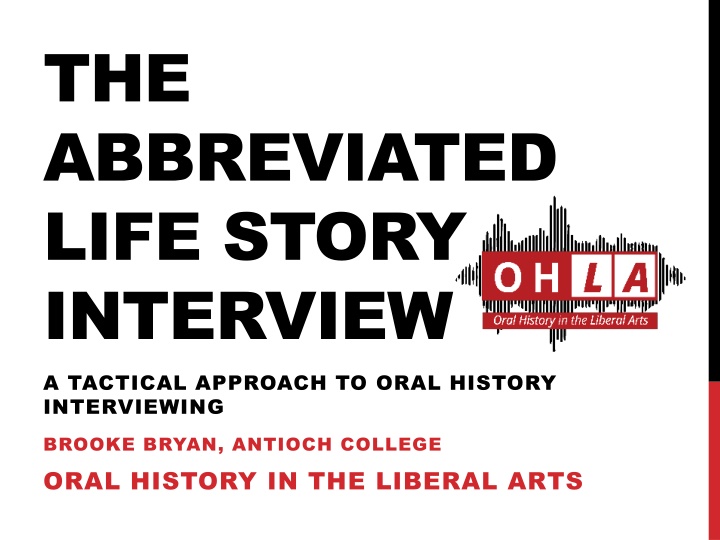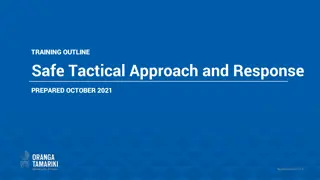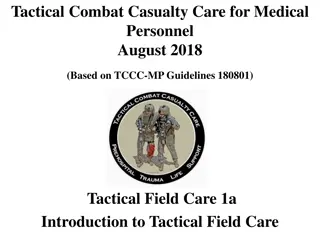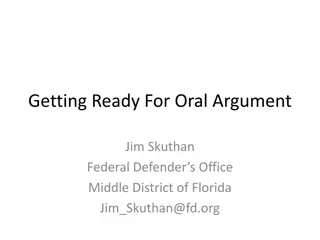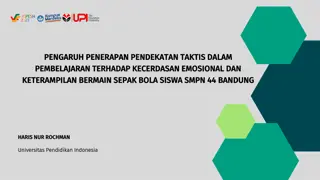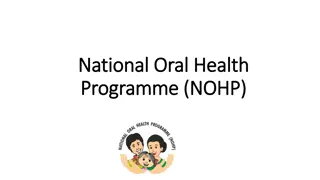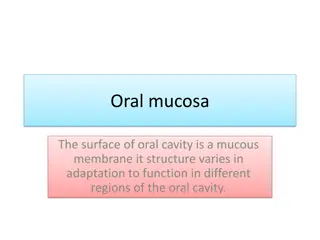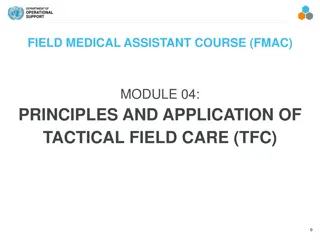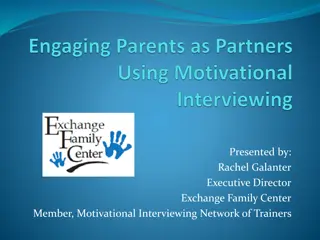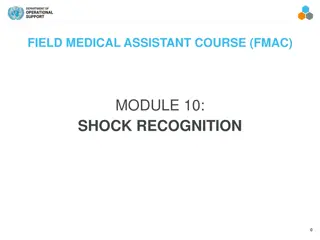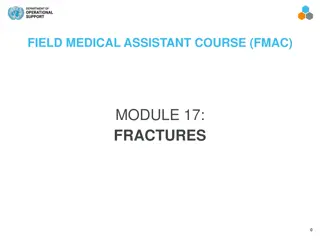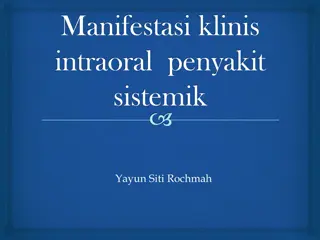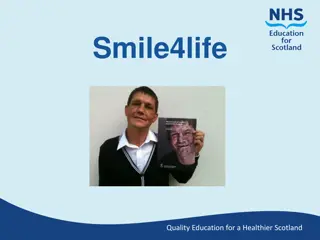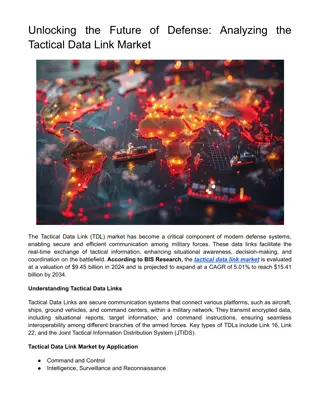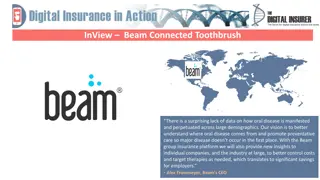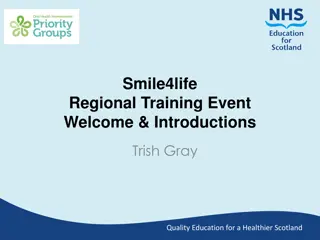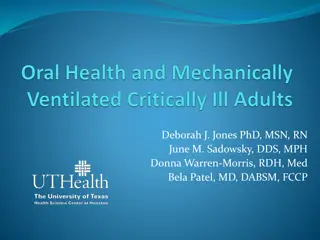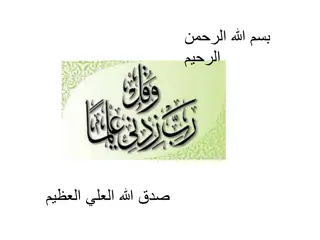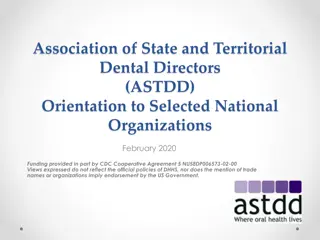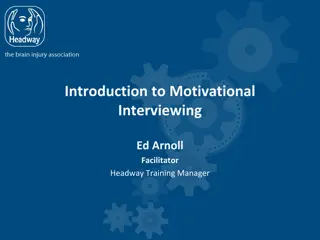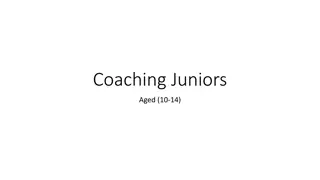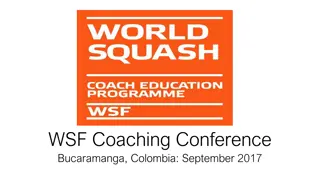Tactical Approach to Oral History Interviewing
A tactical approach to oral history interviewing is crucial, starting with informed consent to ensure ethical and legal considerations are met. The art of the interview involves creating a structured conversation to capture meaningful experiences. Thinking, planning, acting, and interpreting are essential elements for conducting successful interviews.
Download Presentation

Please find below an Image/Link to download the presentation.
The content on the website is provided AS IS for your information and personal use only. It may not be sold, licensed, or shared on other websites without obtaining consent from the author.If you encounter any issues during the download, it is possible that the publisher has removed the file from their server.
You are allowed to download the files provided on this website for personal or commercial use, subject to the condition that they are used lawfully. All files are the property of their respective owners.
The content on the website is provided AS IS for your information and personal use only. It may not be sold, licensed, or shared on other websites without obtaining consent from the author.
E N D
Presentation Transcript
THE ABBREVIATED LIFE STORY INTERVIEW A TACTICAL APPROACH TO ORAL HISTORY INTERVIEWING BROOKE BRYAN, ANTIOCH COLLEGE ORAL HISTORY IN THE LIBERAL ARTS
IT BEGINS WITH INFORMED CONSENT We cannot possibly interview people in the name of oral history without going through a rigorous informed consent process: go over your project statement/research goals/outcomes why you sought them out as an interviewee provide explicit descriptions of how the interviews will be accessed, used, and published. help your interviewee conceive of potential audiences how they can decide to opt-out, and when an opt-out is no longer feasible sharing of release forms which are signed after the interview
WHAT DO WE MEAN WHEN WE SAY INFORMED CONSENT? LEGAL ETHICAL Professional organizations, scholars, and public intellectuals recommend protocols for best practices, in keeping with contemporary ethical sensibilities and possibly applicable legal landscapes. The federal government requires institutions receiving federal funds to be certain that elements of informed consent are in place before their affiliates can commence research involving human subjects.
WHAT DO WE MEAN WHEN WE SAY INFORMED CONSENT? ETHICAL LEGAL Practicing oral history in accordance with the standards published by the Oral History Association is a voluntary decision to act in accordance with the professional community of practitioners. However, certain funding agencies will often only fund projects that adopt professional best practices. Institutional Review Boards are a mandated entity at institutions that receive federal funds. They exist to be sure that all projects affiliated with the institution have rigorous informed consent practices in place for projects involving people. The Principal Investigator is the responsible party.
THE ART OF THE INTERVIEW an interview is a conversation between two people on a pre-established topic/theme a willing interviewee wants to share their experience. don t overestimate your role as interviewer (who is doing what? facilitate the conversation.) Interviewing LISTENING is an art form that becomes more refined with practice a refined interview style comes from how you structure the interview time, and how you ask questions/follow-up questions
THINK. PLAN. ACT. INTERPRET. Thus, before embarking on a busy interview schedule one needs to be oriented to one's question or notion in such a strong manner that one does not get easily carried away with interviews that go everywhere and nowhere. ~Max van Manen
BE TACTICAL. The abbreviated life story interview model is just one example of how to structure the interview space, developed to be a resource for student and volunteer interviewers with little methodological training.
EARLY LIFE LEDE PURPOSEFUL TURN: TOWARDS THE TOPIC DEPTH QUESTIONS REFLECTIVE TURN: TOWARDS IMPLICATIONS AND MEANING FINAL THOUGHTS
THE LEDE After sound checks, begin recording with a lede that establishes the identity of interviewer and interviewee, the place and date, and implicit consent to participate in the stated project for the stated purpose. Your lede will be directly related to your project statement. I am Brooke Bryan, here with Juanita Shockey Harris, to talk about her life as a quiltmaker for a project exploring Flow and Conservation Cultures in Oral History in the Liberal Arts. Juanita, thank you for your willingness to speak with me. Can you please state your full name, and your birth date? Thanks. Today is March 13, 2016. Let s begin with
EARLY LIFE Let s start at the beginning. Tell me about your family and where you grew up What family values were passed on to you? Who were your key mentors or teachers? Seek sensory descriptions (visuals/sounds/smells). Family dinner times, neighborhood friends, early learning experiences. Just be interested! Ease into the conversation and allow yourselves to get comfortable.
THE PURPOSEFUL TURN Bring the interview to the topic at hand, towards the particular theme at hand: For place-based or event-focused projects, you can bring about the purposeful turn with questions like: You grew up in Idaho. How did you come to find yourself in Yellow Springs? I know you experienced the March 64 demonstrations in your home town, but let s get a sense of the community before those events unfolded. Where did you go for social events, where did people go for fun?
THE PURPOSEFUL TURN For thematically-oriented projects exploring ideas, broad themes of social history, or communities of practice: how did you first become involved with *** organization? when did you first realize you were perceived by others as different? what is your first memory of being ***? when did you know you wanted to be a *** (English major, marine biologist)? how did you come to be involved with *** (person/institution/community)?
DEPTH QUESTIONS An interview project especially one that has multiple volunteer or student interviewers must have a core set of questions that get at the heart of the project s intent Depth questions provide continuity across interviews Depth questions should be carefully researched and are probably established by the project planners and advisory group Depth questions were articulated in your IRB application (if applicable) and
THE REFLECTIVE TURN Once the topic is explored through structured Depth Questions, bring the interview to the reflective stage by giving the interviewee space to ponder what it all means, why it matters. Bring us to contemporary times. Where did things go from there? Have things changed? Would you do something differently if you could do it all over? Do you have regrets? Were your actions/responses enough? Have your experiences changed your perspective? impacted the trajectory of your life? caused you to think differently? brought change to your family?
CONCLUSION & FOLLOW-UP This is your chance to return to unfinished business in the interview, open it up to topics you didn t ask about, and thank the interviewer for participating. Earlier you mentioned and I d like to go back to that Is there anything we haven t spoken about that you would like to talk about? Thank you so much for speaking with me today.
RESOURCES Oral History in the Liberal Arts Oral History in the Digital Age Oral History Association Best Practices Forms in the Community Oral History Toolkit Do History Oral History Toolkit Baylor University Intro to Oral History packet Question generator at StoryCorps The American Folklife Center s Cultural Documentation Resources
